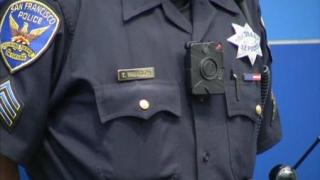Sacramento, CA – California has become the largest state to ban facial recognition software in police body cameras, in a move to protect civil liberties over use of technology prone to mistakes. Governor Newsom today signed AB 1215, a proposal by Assemblymember Phil Ting (D-San Francisco) that prohibits law enforcement from equipping body cameras with facial recognition software and other biometric scanners for three years.
“The public wanted their officers and deputies to use body cameras to provide accountability and transparency for the community. The addition of facial recognition technology essentially turns them into 24-hour surveillance tools, giving law enforcement the ability to track our every move. We cannot become a police state,” said Ting.
 To prove that facial recognition isn’t ready for prime time, the American Civil Liberties Union (ACLU) recently put the technology to the test, running photos of all 120 members of the state Legislature through a mugshot database. It falsely matched 26 lawmakers, including Ting. More than half of those falsely identified are lawmakers of color, illustrating the biases and risks associated with the technology’s dangerous inaccuracies if allowed to subject people to perpetual police line-ups. A similar test conducted on members of Congress last year also produced 28 mismatches.
To prove that facial recognition isn’t ready for prime time, the American Civil Liberties Union (ACLU) recently put the technology to the test, running photos of all 120 members of the state Legislature through a mugshot database. It falsely matched 26 lawmakers, including Ting. More than half of those falsely identified are lawmakers of color, illustrating the biases and risks associated with the technology’s dangerous inaccuracies if allowed to subject people to perpetual police line-ups. A similar test conducted on members of Congress last year also produced 28 mismatches.
“Face-scanning police body cameras have no place on our streets, where they can be used for dragnet surveillance of Californians, our locations, and our personal associations,” said Matt Cagle, Technology and Civil Liberties Attorney for the ACLU of Northern California. “AB 1215 helps ensure Californians don’t become test subjects for an invasive and dangerous tracking technology that undermines our most fundamental civil liberties and human rights.”
False matches led Axon, one of the largest manufacturers of police body cameras, to bar facial recognition programs in its products. Microsoft also had the same concerns, particularly the high error rate among women and people of color, when it declined to sell facial recognition software to a California law enforcement agency.
Local Bay Area cities are also troubled by the implications of this flawed technology. In May, San Francisco became the first city in the U.S. to block the use of facial recognition technology by police and other city agencies. Somerville, MA and Oakland followed weeks later. All three city bans go further than AB 1215 and existing statewide bans in New Hampshire and Oregon, which only apply to police-worn body cameras.
AB 1215 will take effect on January 1, 2020 and sunset in three years, when Ting will reconsider extending the ban.
# # # # #